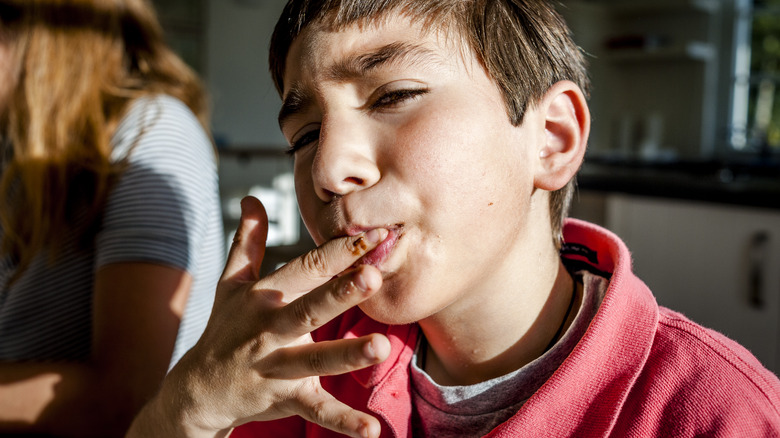From never asking for substitutions at an Italian restaurant to only using your right hand for eating in India, every culture around the world has developed its own unique set of table manners and dining expectations. Unfortunately for most travelers out there, these unwritten rules often remain invisible and unspoken until the moment someone accidentally breaks them.
That said, understanding these cultural differences before any trip abroad is key to avoiding embarrassing moments and social faux pas. Because, believe it or not, not everyone eats, drinks, or dines the same way you might back home. In fact, some people might do entirely different things — some that would have people shaking their heads in embarrassment anywhere outside of that specific country. And although most travelers tend to adhere to their own customs, there’s a surprising habit that catches a lot of people off guard during their first time visiting certain destinations: how normal (and expected) it is for diners to burp after a hearty meal.
A totally normal bodily function that we’re all guilty of experiencing, burping happens to, well … pretty much everyone. However, when it comes to American etiquette, burping anywhere outside of private spaces — especially at the table — is often considered rude or impolite. But that’s when the question arises: impolite to whom? Put simply, to most Western diners. However, in countries like Turkey and India, burping isn’t taboo or offensive — it’s actually a pretty common way of showing just how much you enjoyed your meal.
Burping is considered a compliment in certain cultures
Other international table behaviors that might surprise you
Before getting too burp-happy at the dinner table, it’s worth doing a little hands-on research once you’re at your destination. Look around you to see how other diners might behave, and then try to follow their cue. The best approach to coping with culture shock and embracing a new way of doing things is usually to follow the lead of locals around you. That way, you can avoid making assumptions — like the idea that all members of a culture should share the same identical views when it comes to dining etiquette.
Outside of burping (or not) at the table, there are a handful of other customs that might seem a little unusual. One of these is the ever-so-controversial act of eating with your hands. While many Western children grow up hearing “don’t eat with your hands,” in Ethiopia, Southeast Asia, and parts of the Middle East, using your right hand to grab food is common. That said, make sure you’re only using your fingertips rather than your entire hand, and make sure to always keep your left hand away from the food entirely. Why? Because the left hand is often associated with bathroom hygiene (yes, as in wiping) in these cultures.
Finally, what you eat is just as important as how you eat it. For example, there’s an unspoken seasoning rule in Egypt that will get you a serving of side-eye alongside your meal. Put simply, asking for salt, pepper, or any additional seasoning to your meal after it’s served is a no-go. The reason is that altering your food in any way basically sends a clear message to the chef (albeit intentionally or not) that you find the meal lacking or that you believe it hasn’t been prepared properly.




